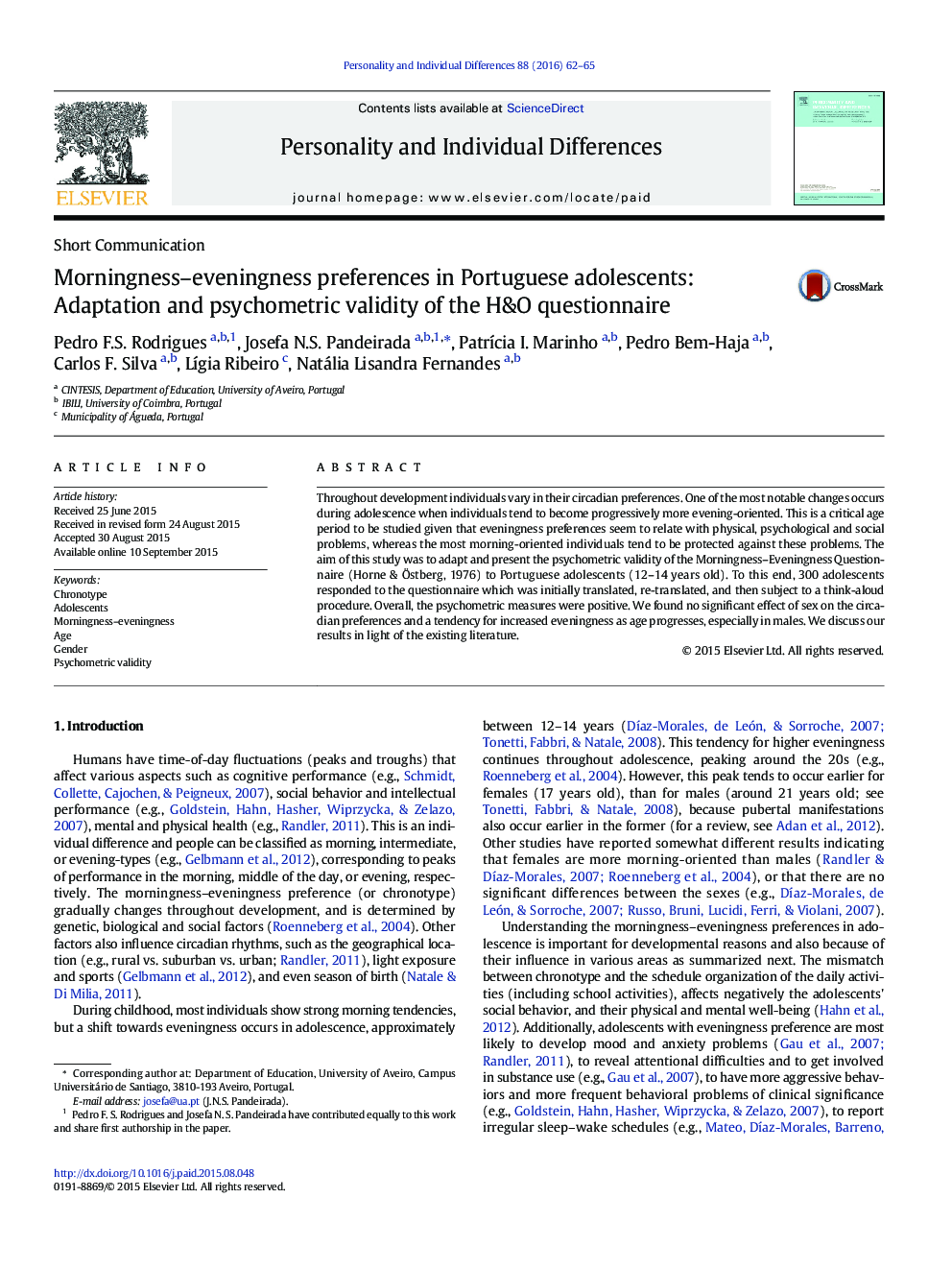| Article ID | Journal | Published Year | Pages | File Type |
|---|---|---|---|---|
| 889934 | Personality and Individual Differences | 2016 | 4 Pages |
•The Morningness–Eveningness Questionnaire was validated to Portuguese adolescents.•We obtained good psychometric proprieties for the questionnaire.•Cut-off points for the different chronotypes were presented.•The majority of the Portuguese adolescents are of the intermediate type.•The data were also analyzed by sex and age of the participants.
Throughout development individuals vary in their circadian preferences. One of the most notable changes occurs during adolescence when individuals tend to become progressively more evening-oriented. This is a critical age period to be studied given that eveningness preferences seem to relate with physical, psychological and social problems, whereas the most morning-oriented individuals tend to be protected against these problems. The aim of this study was to adapt and present the psychometric validity of the Morningness–Eveningness Questionnaire (Horne & Östberg, 1976) to Portuguese adolescents (12–14 years old). To this end, 300 adolescents responded to the questionnaire which was initially translated, re-translated, and then subject to a think-aloud procedure. Overall, the psychometric measures were positive. We found no significant effect of sex on the circadian preferences and a tendency for increased eveningness as age progresses, especially in males. We discuss our results in light of the existing literature.
